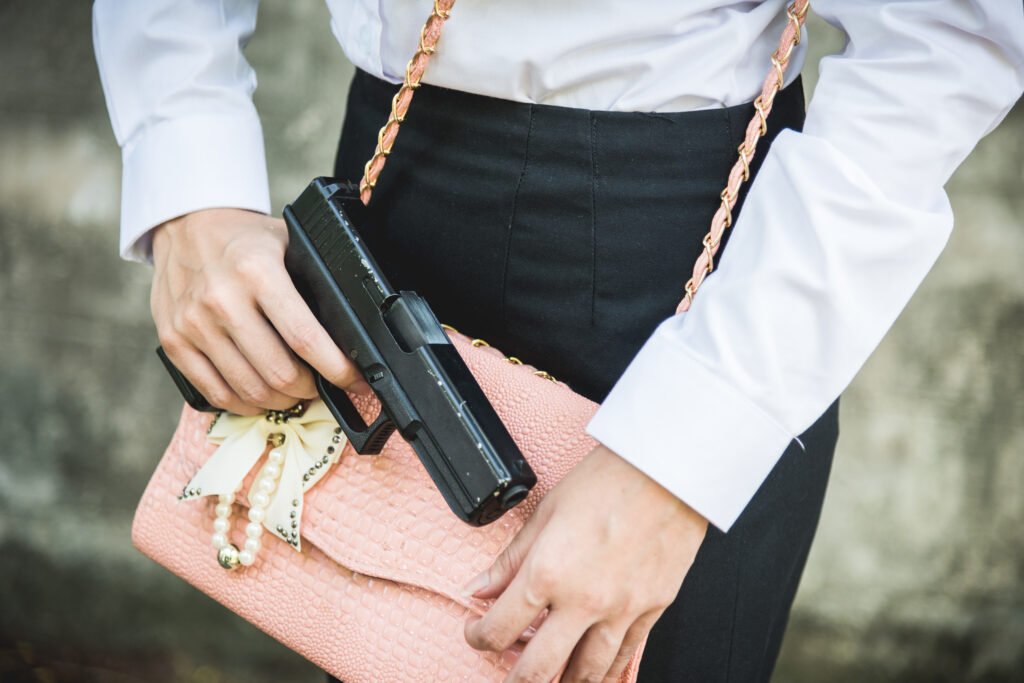Owning a gun for self-defense is one of the most debated topics today. For some, it’s the ultimate symbol of empowerment and personal safety. For others, it’s a dangerous gamble with risks that can outweigh the benefits. The decision to own a firearm is deeply personal, shaped by individual experiences, fears, and values. Whether you’re considering purchasing a gun or simply curious about the pros and cons, understanding both sides of the argument is key to making an informed choice that aligns with your needs and lifestyle.

The Pros of Owning a Gun for Self-Defense
One of the most significant advantages of owning a gun is the ability to protect yourself and your loved ones. Imagine finding yourself in a life-threatening situation, such as a home invasion or an attempted assault. A firearm can provide the means to defend yourself when seconds count. According to research, many defensive gun uses don’t even require firing the weapon—simply showing a firearm can deter an attacker. For example, a homeowner in Georgia successfully scared off intruders by brandishing his gun, ending the confrontation without a single shot being fired. This sense of security is especially valuable for individuals living in high-crime areas or remote locations where police response times may be slower. Guns can also serve as a force equalizer. In situations where physical strength or size puts you at a disadvantage, a firearm can level the playing field. Women, the elderly, or those facing multiple attackers may find a gun to be the only effective means of protection. There’s an empowering aspect to knowing you have the tools to defend yourself, and for many, this provides an unmatched sense of confidence and peace of mind. Beyond individual safety, the deterrent effect of guns is also worth noting. Studies suggest that homes with visible signs of firearm ownership, such as security decals or NRA stickers, are less likely to be targeted by burglars. The mere possibility of encountering an armed homeowner can dissuade criminals, potentially reducing the likelihood of a crime occurring in the first place.
The Cons of Owning a Gun for Self-Defense
Despite these benefits, owning a gun comes with undeniable risks. One of the most concerning is the potential for accidental injury or death. Firearms require careful handling, and mistakes can have catastrophic consequences. In households with children, the risk is even higher. For instance, a study published in Pediatrics found that unintentional shootings involving children often result from improperly stored guns. Safe storage is essential, but even then, accidents can happen. Another significant downside is the potential for escalation. In some situations, introducing a firearm can worsen the conflict rather than resolve it. A heated argument or road rage incident might turn deadly if a gun is involved. This is particularly true for individuals without proper training, as high-stress situations can impair judgment and lead to poor decisions. Owning a gun also brings legal and financial responsibilities. Even in cases of justified self-defense, gun owners may face lawsuits, legal fees, and court proceedings. In one high-profile case, a homeowner who used a gun to defend against an intruder faced years of legal battles and significant financial strain, despite ultimately being cleared of wrongdoing. The emotional toll of such situations can also be immense. Another often-overlooked risk is the increased likelihood of suicide in households with firearms. Research shows that access to a gun significantly raises the chances of suicide, as firearms provide a quick and lethal means of self-harm. This statistic underscores the importance of mental health awareness and secure storage practices for gun owners. Additionally, using a gun effectively in a crisis requires training and regular practice. Owning a firearm is not enough; you need to know how to handle it safely and confidently. High-stress situations can cause even experienced individuals to hesitate or make mistakes, reducing the effectiveness of the weapon. Without proper training, a gun could become a liability rather than an asset.
Balancing the Pros and Cons
If you’re considering owning a gun for self-defense, weigh the benefits against the risks carefully. Training and education are non-negotiable. Attend firearm safety courses, practice at a shooting range, and stay up-to-date on local laws regarding gun ownership and self-defense. Proper training not only improves your skills but also builds confidence in your ability to handle a firearm responsibly. Secure storage is equally important. Invest in a high-quality gun safe or lockbox to prevent unauthorized access. Many gun owners also use trigger locks or biometric safes for added security. These measures protect against theft, accidental misuse, and unauthorized access by children or visitors. It’s also crucial to assess your mental and emotional readiness to own a gun. Owning a firearm means being prepared to use it if necessary—a decision that carries immense responsibility. If you’re uncomfortable with the idea of lethal force, consider non-lethal alternatives such as pepper spray, personal alarms, or self-defense training. Understanding your local laws is vital as well. Gun regulations vary widely by state and country, and knowing your rights and responsibilities can help you avoid legal complications. Some jurisdictions have specific requirements for carrying firearms in public, while others impose restrictions on certain types of guns or ammunition. Familiarize yourself with these rules to ensure compliance.
Conclusion
Deciding whether to own a gun for self-defense is a deeply personal choice. For some, the benefits of protection, empowerment, and peace of mind outweigh the risks. For others, the potential for accidents, misuse, and legal complications makes gun ownership an unappealing option. Regardless of your stance, the decision should be made thoughtfully, with a clear understanding of the responsibilities and challenges involved. If you choose to own a firearm, prioritize training, secure storage, and mental preparedness. If you decide against it, explore other methods of self-defense that align with your values and comfort level. At the end of the day, the ultimate goal is to feel safe, empowered, and confident in your ability to protect yourself and your loved ones.